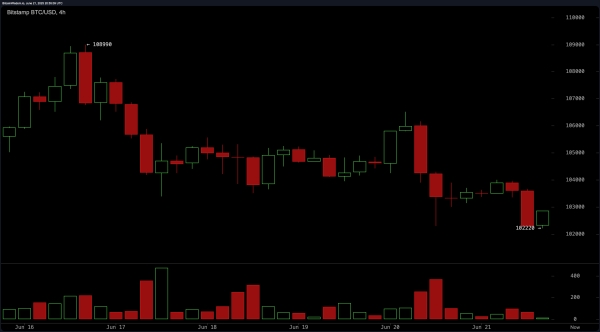Institutional demand and rising ETP flows signal Bitcoin breakout – VanEck
Bitcoin (BTC) is set for a potential breakout as increasing institutional investment, growing miner holdings, and rising exchange-traded product (ETP) flows signal mounting demand, according to VanEck’s latest Bitcoin ChainCheck report.
The report also highlighted that the growing influence of institutional adoption in the Bitcoin market has strengthened the correlation between ETP flows and BTC price.
ETP correlation
Data from the report showed that weekly net inflows into US Bitcoin ETPs reached $19.4 billion by mid-October, with institutional inflows driving much of the price discovery process.
The correlation between weekly ETP inflows and Bitcoin returns was notably strong, with an R² value of 0.3422. This indicates that institutional money is increasingly leading rather than following Bitcoin’s price movements. The R² value is an indicator commonly used to determine how a model fits data and predicts future outcomes.
VanEck head of digital assets research Mathew Sigel said:
“Institutional participation, through these investment vehicles, is having a clear impact on price, reinforcing Bitcoin’s position as a key asset in the global financial system.”
The report also found that daily ETP flows have shown modest predictive power for Bitcoin price changes in after-hours trading, further underlining the influence of institutional inflows.
VanEck’s analysis revealed that during specific periods from July to September, the relationship between ETP flows and Bitcoin returns strengthened, demonstrating how US market momentum is spilling over into the 24/7 global crypto markets.
Macro-hedge
VanEck stated that Bitcoin is increasingly being recognized as a “macro-hedge” against economic instability and market volatility. The report pointed to Bitcoin’s growing appeal among institutional investors seeking to protect their portfolios from inflation, currency devaluation, and geopolitical uncertainty.
Many see Bitcoin as a hedge against traditional financial market fluctuations, similar to gold, but with added benefits like liquidity and digital accessibility. Recent trends in miner activity and corporate treasury strategies have reinforced this narrative.
The report noted that US-listed miners added 2% to their Bitcoin treasuries in September, following an 11% surge in August. This growing accumulation of BTC, coupled with an 8% rise in corporate treasury investments, demonstrates robust institutional confidence in Bitcoin’s long-term prospects.
According to Sigel:
“Publicly traded miners and major corporations, including Japanese real estate manager Metaplanet, continue to accumulate Bitcoin, reflecting its rising status as a store of value.”
stated Matthew Sigel, Head of Digital Assets Research at VanEck.
Market sentiment and dominance
Market sentiment around Bitcoin has improved significantly, with nearly 90% of Bitcoin addresses now in profit. The unrealized profit/loss ratio has risen by 6% over the past month, indicating a more optimistic outlook compared to the summer months.
Additionally, Bitcoin’s dominance in the crypto market has increased to 57%, reaching levels not seen since April 2021. This rise in market share further strengthens Bitcoin’s status as the leading store of value within the crypto ecosystem.
The report also highlighted Bitcoin’s resilience in various regulatory environments, particularly as U.S. regulators, including the SEC, increase scrutiny of non-Bitcoin digital assets. Bitcoin, by contrast, has remained largely insulated from this pressure, reinforcing its role as a safer asset.
In terms of regional trends, US and European traders have been the primary drivers of Bitcoin’s price performance, with the asset gaining 2% during US trading hours and 4% during European sessions over the past month.
Meanwhile, the long-standing pattern of Asia selling Bitcoin to US and European buyers remains intact and has been a consistent factor in price movements, with demand from Western markets often offsetting selling pressure from Asian markets.

